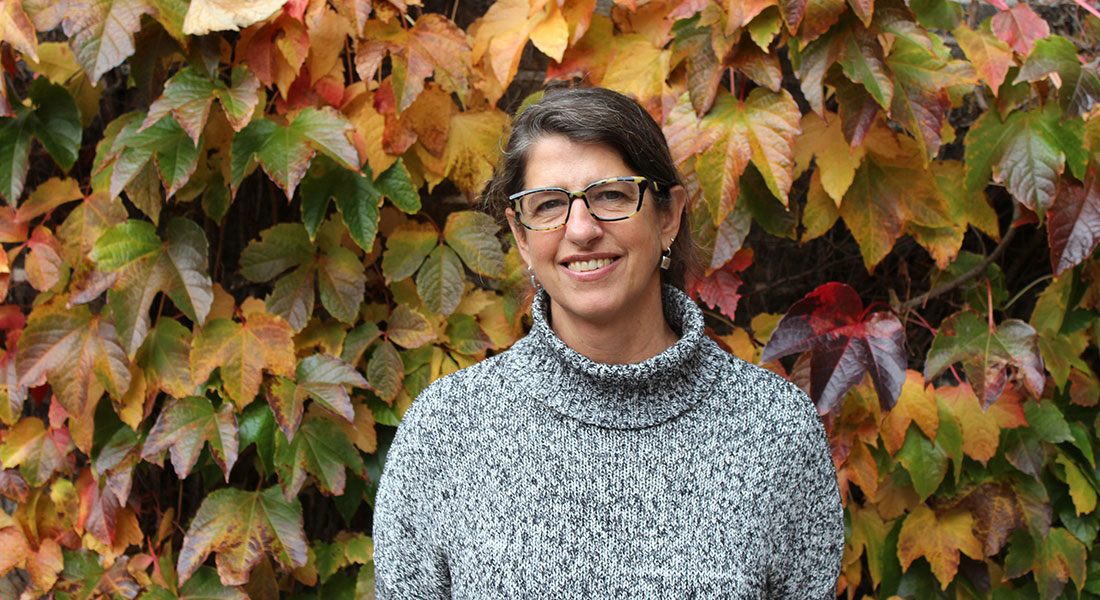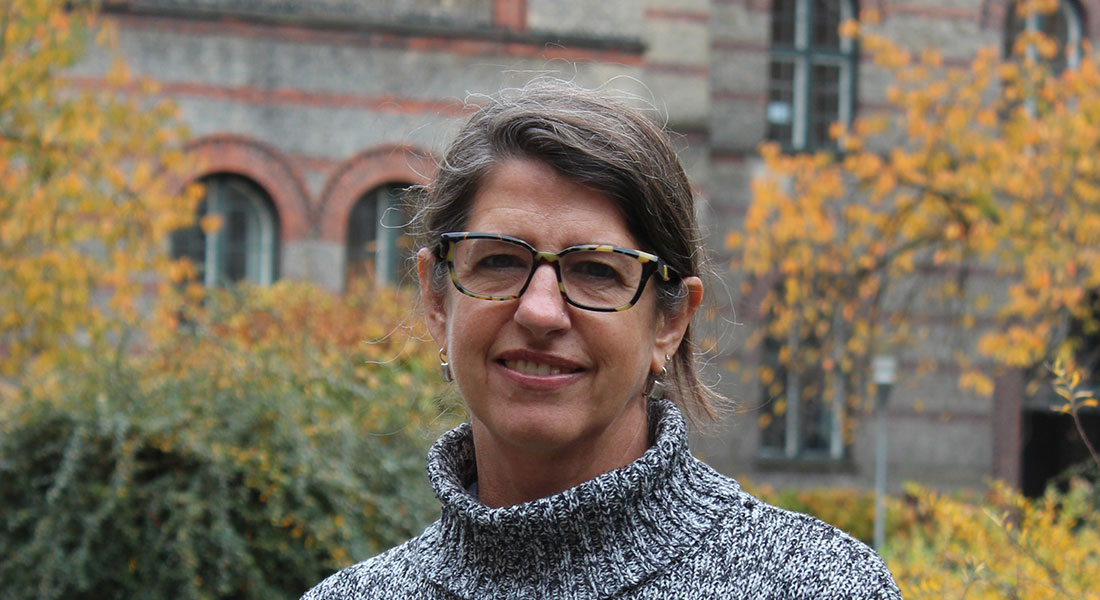Green political scientist: Non-state actors are now driving the green transition
For 30 years as a political scientist, the American professor Michele Betsill has focused on climate and environmental issues. She sees in these years that non-state actors have a rapidly increasing commitment to - and rapidly growing influence on green agendas.

Across the globe, almost everyone agrees that an ambitious, green transition is needed if human-made climate change is to be stopped. But who is going to show the way and actually bring the green transition on track? That question is harder to answer - even for climate scientists and decision makers.
The most exposed forum for climate change is without a doubt the UN's annual COP meetings. Here, world leaders meet to discuss the handling of global warming. Few of the COP meetings lead to binding agreements - which generally disappoints the peoples of the countries.
Green transition - globally and locally
But where should the concrete action come from, if not from world leaders? Michele Betsill highlights the role of non-state actors, which has been growing in recent years, according to the professor.
States have continued to hold COP meetings for many years without moving forward - but a number of companies, civil society organizations, denominations and cities showed the UN members what is possible.
"In many ways, it was they who made the Paris Agreement possible. States have continued to hold COP meetings for many years without moving forward - but a number of companies, civil society organizations, denominations and cities showed the UN members what was possible. And then the countries actually made the Paris Agreement on the basis of that will,” she explains.
Over the years, Michele Betsill has seen an interesting, green interplay between state and non-state actors, which is becoming ever larger and more complex.
“25 years ago, in my dissertation I looked at the role of environmental NGOs in the climate negotiations leading up to the Kyoto agreement in 1997. I came across a group of mayors attending the international negotiations and I thought: “What role do mayors play here - what do they have to do with addressing global climate change?".
Michele Betsill therefore began in her post doc project to look at how cities reacted to climate change, why they engaged in the green transition and what they actually did.
"It gave me a whole new perspective on the political space, where people are trying to deal with the climate crisis. The green transition went from being a global, political task to a large extent also being seen as a local challenge - just as climate change itself causes problems locally across the globe, "she emphasizes.
A democratic slide?
When the UN negotiations stalled during the 00s, Michele Betsill somehow saw an alternative reality unfold: Everywhere she went, there were companies, NGOs and local politicians acting, while the multilateral negotiating track was stranded.
Green transition is good for the climate – no matter who drives the change. That is hard to disagree with. But is it not a democratic problem that non-elected, perhaps even hidden actors, are taking charge when our planet must be maneuvered through climate change?
“The issue of democratic accountability in the green transition is very complex. It becomes controversial when we talk about private actors with economic interests. A company like Walmart is the tenth largest economy in the world. It has a rather aggressive sustainability and climate portfolio, which runs throughout the company's supply chain. Walmart has, in many ways, greater impact, not least financially, than most governments. And that raises many questions, because there is not much democratic responsibility at stake here,” the professor points out.
However, the non-state actors are not only pulling the climate agenda in an undemocratic direction, points out Michele Betsill. She mentions here the city councils working with green transformation, which can rightly be said to be even more democratic than the national government level’s climate investments.
"Most people have a closer connection and better access to local politics, compared to national politicians. When the green initiatives take place in your own city, you will often have a greater opportunity to participate in the democratic processes and concrete considerations about the realization of the projects,” she assesses.
However, Michele Betsill sees a clear tendency towards placing the responsibility for the green transition in the hands of actors who are not voted in - and cannot be voted out.
Currently, Michele Betsill's own research focuses on the role of private foundations and companies as investors in many of the climate initiatives we are currently seeing.
“Private actors have become more and more active in the climate field. Take Jeff Bezos, the founder of Amazon, who in 2020 promised to spend ten billion dollars on climate initiatives. At the COP meeting in Glasgow last year, there were also a lot of commitments to private donations.”
That trend, according to Michele Betsill, raises key questions about democratic accountability and what it means when private wealth is directed at public interests. It is an aspect of the green transition that is greatly under-illuminated, the professor believes:
“We need to keep up with who is involved in climate philanthropy and financing, which projects that are being invested in and which initiatives there is no interest in. And finally: what does the growing private interest in climate change mean for our common path towards a low-carbon future,” she says.
More efforts must be made to clarify the role of national governments in the green transition. Should they be the ones creating platforms, infrastructure and incentives, while non-state actors are launching far more of the green projects? In that case, it must be done with more transparency and accountability than today
A question she herself finds complicated to answer.
"But my clear assessment is that in the future more efforts must be made to clarify the role of national governments in the green transition. Should they be the ones creating platforms, infrastructure and incentives, while non-state actors are launching far more of the green projects? In that case, it must be done with more transparency and accountability than today,” she believes.
Democratic participation is not always the solution
Michele Betsill has been analyzing the changing trends in the green transition since 2008 in collaboration with the world's largest network of environmental governance researchers: Earth System Governance. The American professor was among the initiators of the network, where researchers from different disciplines can work together on environmental and climate issues. Today, more than 2,000 people receive the research network's newsletters.
After eight years of work, Michele Betsill undertook to take stock of the network's research and results. Together with 30 other social scientists, she published a compendium in 2020 entitled "Agency in Earth System Governance". The publication provides an overview of what the network has learned about the different types of actors involved in the major climate and environmental issues - and what types of governance mechanisms and challenges they deal with. A recurring theme in the publication is democratic participation.
"Often the democratic process is presented as the solution itself. If we just have a democratic participation process, then it should probably go well. Under certain conditions, this may be true, the research shows, but there are many factors that determine whether democratic participation has a real effect,” Michele Betsill emphasizes and elaborates:
“Who is invited to participate, and what kind of participation is it? There are language challenges, there are resource issues, there are logistical issues - e.g. if participants have to travel far. So we have to question the idea of participation as a panacea,” she states.
Facts about the researcher
Since January 2021, Michele Betsill has been a professor at the Department of Political Science at the University of Copenhagen. Prior to coming to Copenhagen, she was a professor at Colorado State University for two decades.

- Michele Betsill has a focus on non-state actors in climate and environmental governance and politics. Her research has revealed some of the "hidden" actors, processes and spaces for decision-making in the green field worldwide.
- She is the author of over 50 peer-reviewed monographs, edited volumes, journal articles and book chapters and has contributed to national and international scientific assessments.
- Michele Betsill received her Ph.D. from the University of Colorado and was a post-doc at Harvard's Kennedy School of Government. She has held visiting positions at Lund University, University of Colorado, US National Center for Atmospheric Research and Economics University of Prague.
- She is a founding member of, and served for a decade for, the Scientific Steering Committee for the Earth System Governance Project - the world's largest network of social scientists working at the intersection of governance and global environmental change. She is currently associate editor of the project's flagship journal, Earth System Governance.
Contact
Professor
Michele Betsill
Department of Political Science
E-mail: m.betsill@ifs.ku.dk
Phone: +45 35 33 08 26
Communication consultant
Simon Knokgaard Halskov
E-mail: sih@samf.ku.dk
Phone: +45 93 56 53 29
